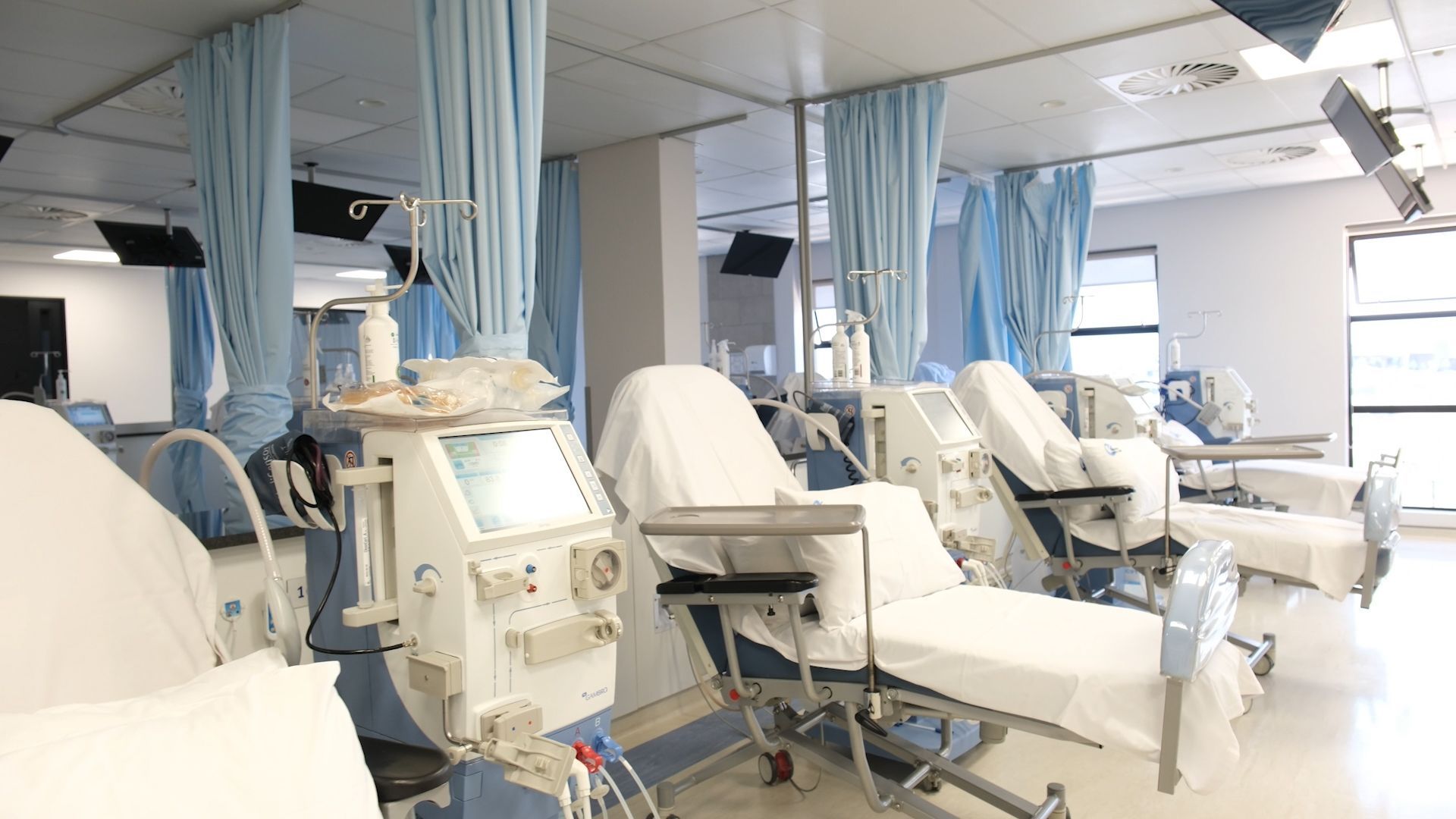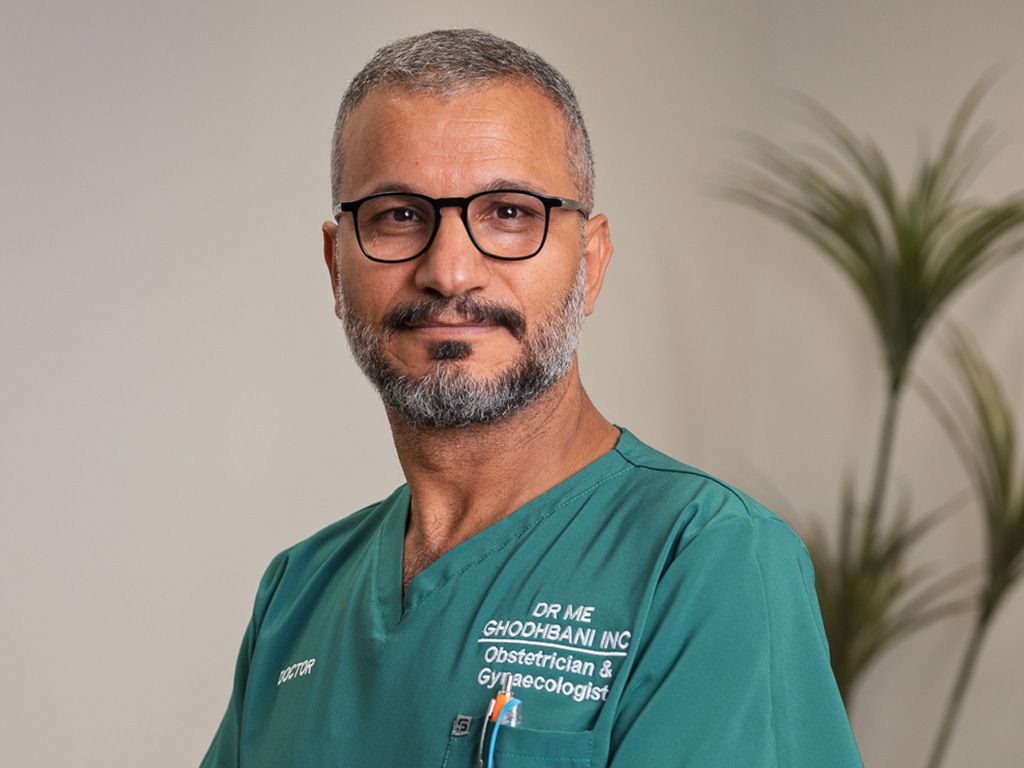Raising the volume on kidney health
Step into the heart of compassionate renal care at National Renal Care (NRC): Pictured here is our centre at Netcare Alberton Hospital in Johannesburg, which is one of 71 such NRC facilities countrywide. With our dedicated team of nephrologists, technologists, and nurses, you'll find personalised support and expert guidance at every step of your dialysis journey. Experience the difference with NRC – where care meets convenience.
National Renal Care sounds the call to stem ‘silent epidemic’
March 14 marks World Kidney Day. Health and kidney care provider National Renal Care (NRC) is sounding the call for heightened awareness and proactive management of kidney health to confront the escalating threat of kidney disease in South Africa.
Highlighting the stark reality uncovered by a 2019 sub-Saharan African study, Dr Chevon Clark, chief executive officer of NRC, stresses the urgent situation. "Some four years ago, chronic kidney disease already impacted more than 1 in 10 South Africans, 12.9% of our population, surpassing rates in East and West African countries. The importance of early detection and proactive intervention cannot be emphasised enough, as every day without timely action worsens the situation for those affected by kidney disease."
Chronic kidney disease marks a perilous stage where kidney function deteriorates to a point where life hangs in the balance, relying on interventions like dialysis or kidney transplants. Tragically, it often lurks undetected until it reaches advanced stages, compounded by a lack of awareness," she cautions, urging swift collective action to confront this urgent challenge head-on.
Understanding the silent threat of kidney disease
According to Dr Clark, understanding the silent threat of kidney disease is crucial to making a meaningful difference.
“Through education and proactive measures, we can empower individuals to protect their kidneys. At NRC, we understand only too well that living with chronic kidney disease is a lifelong journey, and we are, therefore, there to offer support and guide patients throughout their kidney health journey – from risk assessment and preserving kidney function to advanced disease management,” she says.
Dr Clark shares three essential tips for better kidney health:
- Early intervention saves lives: Regular screenings are crucial, especially for those with underlying health conditions.
- Knowledge is power: Stay informed about your kidney health.
- Advocate for yourself: Be proactive in your healthcare journey and seek personalised care.

Dr Chevon Clark, chief executive officer of National Renal Care (NRC)
Tips for kidney health
- Stay active: Regular physical activity promotes circulation and overall wellbeing.
- Nourish your body: Maintain a balanced diet rich in fruits, vegetables and lean proteins to support kidney function.
- Avoid harmful habits: Limit consumption of alcohol, tobacco and other substances that can exacerbate kidney damage.
- Stay hydrated: Drink six to eight glasses of water daily to support kidney function and flush out toxins.
- Monitor vital health indicators: Keep tabs on your blood pressure and blood sugar levels, and manage these closely with your treating doctor.
Unlocking the secret of kidney health
Our kidneys silently perform a vital role in keeping our bodies toxin-free and balanced. As filters, healthy kidneys eliminate dangerous toxins, remove excess fluid from the body and maintain acid-base balance. Without this crucial process, our bodies would become overwhelmed with waste products, leading to severe health consequences.
Chronic kidney disease, unfortunately, is incurable. Yet, early detection can significantly slow its progress and delay the need for dialysis. High-risk individuals should prioritise annual kidney health assessments to catch any issues early on. Healthcare practitioners play an essential role in diagnosing and treating kidney conditions, often recommending lifestyle changes to inhibit disease progression.
The critical risk factors for kidney disease include uncontrolled hypertension, diabetes, smoking, alcohol and drug abuse, trauma, infections and certain cancers. Maintaining a healthy lifestyle and regular check-ups are paramount for prevention and early intervention.
“In South Africa, high blood pressure is the leading cause of kidney disease, responsible for 60 to 65% of cases. Individuals with hypertension, diabetes, or a family history of kidney disease face heightened risks and must remain vigilant.
Get to know your risk factors to manage them better, and ensure that you have regular check-ups with your healthcare provider to maintain healthy blood pressure levels and minimise kidney damage,” she suggests.
You’re not alone
Individuals with kidney disease are not alone, and support is available every step of the way through the Healthy Start programme.
“The primary function of this educational programme, which is unique to NRC, is to educate patients with early-stage kidney disease to help slow the progression to prevent complete kidney failure. We also assist patients who approach us when they need dialysis with a range of options suitable for their needs,” she explains.
“Dedicated to achieving optimal patient outcomes, we're continuously exploring advancements in renal care, which is supported by well-established services such as haemodialysis and peritoneal dialysis. Complementing this approach are patient-centric services, exemplified by our dedicated mobile app, facilitating active patient engagement and providing convenient access to pathology results and kidney-friendly recipes.”
The NRC digital ecosystem, anchored by the NephrOn health record system, ensures seamless care coordination across diverse healthcare touchpoints, guaranteeing unmatched efficiency and continuity of care. With a network spanning 75 dialysis centres across South Africa, NRC strives to set the standard for accessibility and inclusivity in renal care while providing convenient lifesaving therapy to patients regardless of location or circumstance.
"National Renal Care stands at the forefront of the battle against kidney disease, advocating for early detection, proactive management and patient empowerment," concludes Dr Clark. "Together, let's raise awareness, promote kidney health and improve the quality of life for kidney patients.”
For more information, please visit https://nrc.co.za/.













